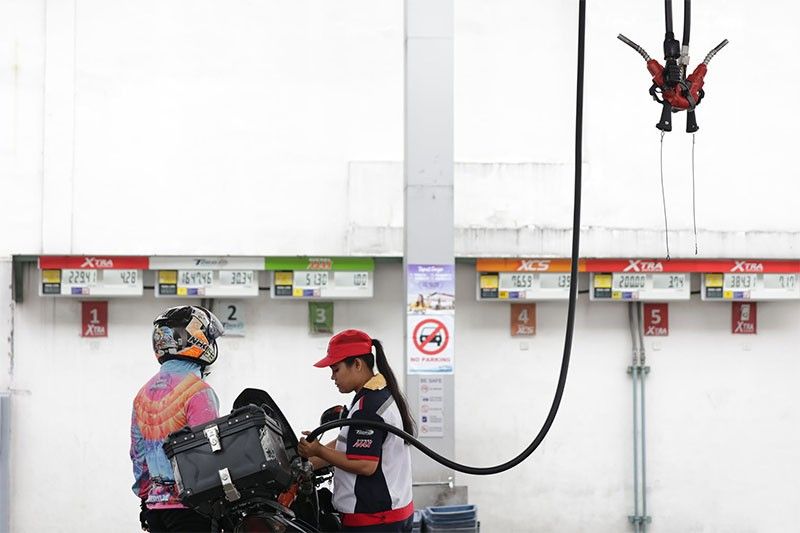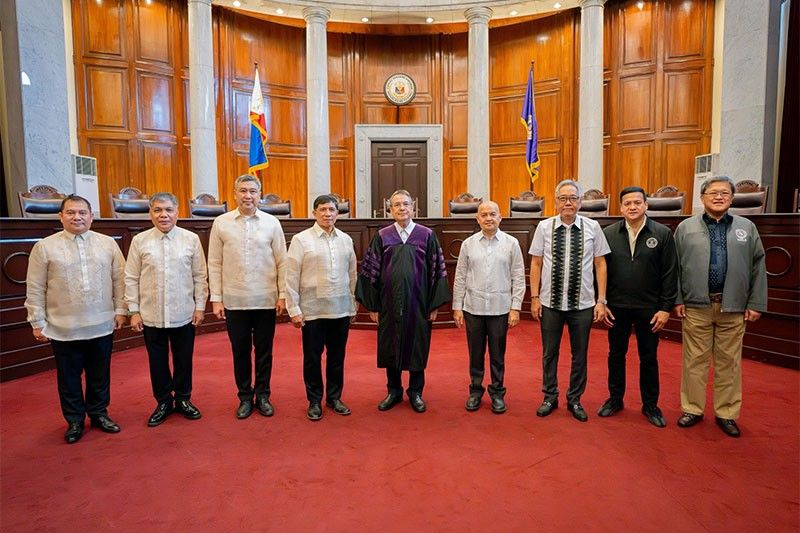
Upgrade to High-Speed Internet for only ₱1499/month!
Enjoy up to 100 Mbps fiber broadband, perfect for browsing, streaming, and gaming.
Visit Suniway.ph to learn
MANILA, Philippines — A House leader called out the irony in Sen. Bato dela Rosa’s desire to compel Cabinet officials to continue attending a Senate probe.
While Dela Rosa cited inter-parliamentary courtesy to skip the House Quad Committee’s inquiry into extrajudicial killings in the drug war, he is now pushing to subpoena executives to appear before the Senate foreign affairs committee.
These officials are being called to answer questions at the probe into former President Rodrigo Duterte’s arrest and turnover to the International Criminal Court (ICC).
For House Assistant Majority Leader Jude Acidre (Tingog Party-List), Dela Rosa seems to be demanding a level of respect he appears unwilling to extend to the executive branch.
“‘Di po natin pinuwersa. Hinintay po natin ‘yung kapwa nating mambababatas na voluntarily magappear sa House,” he said at a press conference on Friday, April 4. “Pero hindi natin naririnig ‘yung pareho kay Sen. Bato.”
(We did not force them. We waited for our fellow lawmaker to voluntarily appear before the House. … But we don't hear the same from Sen. Bato.)
Skipping the drug war probe
The senator, who previously served as the country’s police chief and architect of Duterte’s anti-illegal drugs campaign, refused to attend the Quad Comm hearings that delved into the bloody crackdown on drug suspects.
RELATED: Six years after ICC exit, Duterte’s arrest exposes deep-seated impunity — group
He repeatedly vowed not to attend, with one of his earliest declarations in June 2024, when he argued that inter-parliamentary courtesy “is an enshrined practice and tradition among legislative chambers” that should be respected.
The Quad Comm also acknowledged the senator's right to skip its hearings, noting that the invitation was only an opportunity for him to answer questions or clarify his role in the so-called war on drugs.
“Ginalang ng House of Representatives ang [inter]-parliamentary courtesy by not insisting on the presence of Sen. Dela Rosa [to answer] questions regarding his role as chief PNP sa panahon ng EJK,” Acidre said.
(The House of Representatives respected inter-parliamentary courtesy by not insisting on Sen. Dela Rosa’s presence to answer questions regarding his role as PNP chief during the time of EJKs.)
“Mahirap naman na sila, sa pagkakataon ngayon, ay ibabalewala ang pag invoke ng co-equal branch ang executive privilege,” he added.
(It would be difficult for them, at this point in time, to simply ignore the invocation of executive privilege by a co-equal branch.)
The Senate foreign relations committee, chaired by Sen. Imee Marcos, requested subpoenas to compel high-ranking officials to testify after they declined invitations to attend the second hearing on Thursday, April 3.
What is an executive privilege?
Executive Secretary Lucas Bersamin, in a letter to the panel, invoked executive privilege and the sub judice rule, citing national security and diplomatic concerns.
Malacañang also argued that the invited officials had already attended the first hearing, where Dela Rosa could have asked his questions. However, he was absent then.
While executive privilege is not explicitly stated in the 1987 Constitution, it has been upheld in jurisprudence as an implied power under the separation of powers doctrine. It allows the executive branch to withhold the publication of sensitive information from other branches of government. However, it is ultimately up to the courts to determine whether the privilege is valid.
Dela Rosa also accused Malacañang of disregarding the Senate’s role as a “co-equal branch” responsible for “checks and balances.” Marcos went further, suggesting the officials’ absence and invocation of privilege amounted to a “cover-up.”
Senate President Chiz Escudero, however, urged caution, warning that issuing subpoenas without legal review could trigger a constitutional crisis.
“As I said, I don't want to create a constitutional crisis by issuing a subpoena if there is an invocation of executive privilege. Our resort should be with the court,” he said in a mix of English and Filipino during Thursday’s media forum.
While inter-parliamentary courtesy or executive privilege may be invoked, Acidre also said there still needs to be “a careful balance.”
In Dela Rosa’s case, however, he said: “Kung hindi niya kaya magawa, ‘wag na niya ituro ‘yung iba. (If he can’t do it, he shouldn’t point fingers at others.)”
Duterte's ICC case
Duterte is currently detained in The Hague, Netherlands, by the ICC on charges of crimes against humanity linked to his drug war campaign, which led to over 6,000 deaths, according to government data.
The charges also stem from his brutal pursuit of criminals during his time as Davao City mayor.
His confirmation of charges hearing is scheduled for September 23. While preparing, Duterte’s defense team plans to seek an interim release and challenge the ICC’s jurisdiction to have the case dismissed.

 2 months ago
27
2 months ago
27



